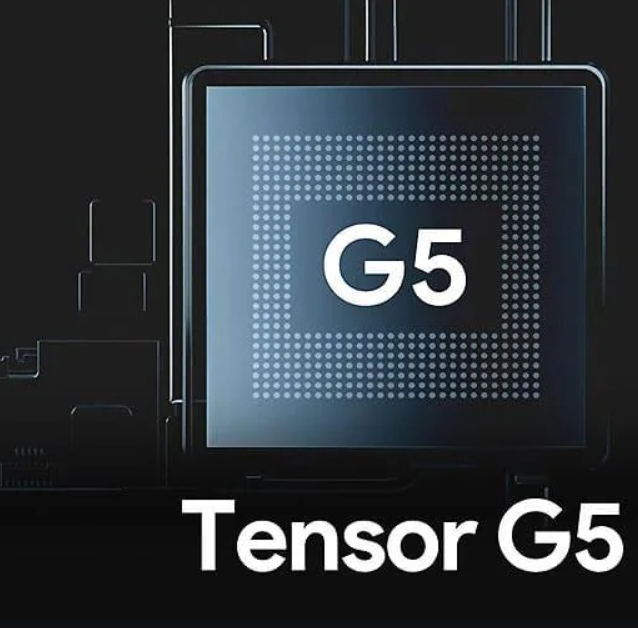The Google Pixel 10 series brings a major leap forward in AI, camera, and overall user experience. Here’s a concise breakdown of what’s new:
🔍 1. Smarter AI with Tensor G5 & Gemini Nano
- Google Tensor G5 chip: Custom-built for AI performance, with a 34% faster CPU and 60% more TPU compute power.
- Gemini Nano on-device AI: Powers features like Magic Cue (contextual suggestions), Voice Translate (real-time voice-mimicking translation), and Camera Coach.
📸 2. Camera Upgrades
- Triple-camera setup on the base Pixel 10:
- 48MP main
- 13MP ultrawide
- 10.8MP 5x telephoto (a first for the base model)
- Super Res Zoom up to 20x on Pixel 10, and 100x on Pro models.
- Enhanced Night Sight, Portrait Mode, and Auto Best Take for group photos.
🔋 3. Battery & Charging
- 4,970 mAh battery (up from previous gen)
- 30W wired charging, Qi2 wireless charging with Pixelsnap magnetic accessories.
📱 4. Display & Design
- 6.3-inch OLED, 120Hz refresh rate, 3,000 nits peak brightness
- Material 3 Expressive UI: More colorful, customizable, and fluid animations.
- Recycled materials, satin metal frame, and four new colors: Obsidian, Frost, Indigo, Lemongrass.
🧠 5. AI Features in Daily Use
- Magic Cue: Proactively surfaces info like flight details or order numbers during calls or texts.
- Daily Hub: AI-powered summary of your day
- Add Me: AI-assisted group photo tool
- Gemini Live: Visual AI help in real time.
🔒 6. Long-Term Support
- 7 years of OS, security updates, and Pixel Drops.
🧩 7. Accessories & Ecosystem
- Pixelsnap accessories (chargers, stands, wallets) via Qi2 magnets
- Cross-compatible with many MagSafe accessories.
All members of Pixel 10 family with their specs:
Google’s 2025 Pixel 10 family is four-deep.
All four run the new Tensor G5 chip and share the same 7-year update promise, but the further up the ladder you go, the more screen, camera, memory, battery and little pro extras you get.
1. Pixel 10 – “the sweet-spot”
- Price: $799 (128 GB) / $899 (256 GB)
- Screen: 6.3″ 120 Hz OLED, 3 000 nits, 1080p
- RAM / storage: 12 GB | 128 or 256 GB only
- Cameras: 48 MP wide + 13 MP ultra-wide + NEW 10.8 MP 5× telephoto | 10.5 MP selfie
- Video: 4K60 max
- Battery / charging: 4 970 mAh | 30 W wired | Qi2 wireless
- Extras: Wi-Fi 6E, no temp sensor, no UWB
- Who: mainstream buyers who want telephoto without Pro price.
2. Pixel 10 Pro – “compact Pro”
- Price: $999 (128 GB) → $1 449 (1 TB)
- Screen: 6.3″ 1-120 Hz LTPO OLED, 3 300 nits, 1280p (sharper)
- RAM / storage: 16 GB | 128 / 256 / 512 GB / 1 TB
- Cameras: 50 MP wide + 48 MP ultra-wide + 48 MP 5× telephoto | 42 MP selfie
- Video: 8K30, Video Boost, Night Sight Video
- Zoom: 100× Super-Res (vs 20× on base)
- Battery / charging: 4 870 mAh | 30 W wired | Qi2
- Extras: Wi-Fi 7, ultra-wideband (UWB), infrared temp sensor
- Who: power users that like small phones but want every camera & pro feature.
3. Pixel 10 Pro XL – “everything plus biggest screen”
- Price: $1 199 (256 GB) → $1 549 (1 TB)
- Screen: 6.8″ 1-120 Hz LTPO OLED, 3 300 nits, 1344p
- Cameras: identical to 10 Pro (50 + 48 + 48 MP, 42 MP selfie, 8K, 100× zoom)
- Battery / charging: 5 200 mAh | 45 W wired (fastest) | Qi2
- RAM / storage / extras: same as 10 Pro (16 GB, up to 1 TB, Wi-Fi 7, UWB, temp sensor)
- Who: big-screen lovers, mobile gamers, battery hogs.
4. Pixel 10 Pro Fold (2025 refresh) – “the foldable”
- Price: $1 799
- Screens: 6.4″ cover + 8″ inner LTPO OLED, both 120 Hz
- Chip: Tensor G5 but tuned for dual-screen thermal
- Cameras: 48 MP main + 10.8 MP 5× tele + 12 MP ultra | 10 MP selfie (cover) / 10 MP (inner)
- RAM / storage: 16 GB | 256 or 512 GB
- Battery: 5 015 mAh total (split-cell) | 45 W wired | Qi2
- Extras: Wi-Fi 7, UWB, temp sensor, fold-specific software (table-top mode, dual-pane apps)
- Who: multitaskers / early-adopters who want tablet space in a pocket.
Quick-decision cheat-sheet
- Need telephoto but on a budget? → Pixel 10
- Want pro cameras & temp sensor but hate big phones? → Pixel 10 Pro
- Big screen + biggest battery + fastest charging? → Pixel 10 Pro XL
- Folding tablet-phone hybrid? → Pixel 10 Pro Fold
All four launch with Android 16 and seven years of OS / security / Pixel Drop updates, so the choice really comes down to size, camera ambition and wallet thickness.
Tensor G4 Vs G5
Here’s a concise, side-by-side look at how Google’s Tensor G5 (2025) actually stacks up against last year’s Tensor G4 now that real-world tests are in.

| Tensor G4 (Pixel 9) | Tensor G5 (Pixel 10) | |
|---|---|---|
| Manufacturing | Samsung 4 nm | TSMC 2nd-gen 3 nm |
| Big / mid / little CPU | 1× Cortex-X4 3.1 GHz 3× A720 2.6 GHz 4× A520 1.9 GHz | 1× Cortex-X4 3.78 GHz 5× A725 3.05 GHz 2× A520 2.25 GHz |
| Geekbench 6 (Pro XL) | ≈ 1 900 SC / 4 600 MC | ≈ 2 330 SC (+23 %) / 6 375 MC (+38 %) |
| AnTuTu v10 total | ≈ 1 290 000 | ≈ 1 508 000 (+17 %) |
| GPU | ARM Mali-G715 MP7 | Imagination PowerVR DXT-48-1536 |
| GPU (Wild-Life Extreme) | ≈ 2 480 pts / 14.8 fps | ≈ 3 250 pts (+31 %) / 19.5 fps |
| AI (Gemini Nano on-device) | 3rd-gen TPU | 4th-gen TPU – 60 % faster, 2× more efficient |
| ISP / Video | 4K120 / 8K30 | same modes but new GXP ISP → better HDR & Night-Sight video |
| Modem | Samsung Exynos 5400c | new integrated 5G modem (lower power, 7.5 Gb/s DL) |
| Wireless | Wi-Fi 6E, BT 5.3 | Wi-Fi 7, BT 6.0, UWB (on Pro models) |
| Memory support | LPDDR5X 4.26 Gb/s | LPDDR5X 5.1 Gb/s, UFS 4.0 |
| Power & heat | Heavy throttling after ~2 min | Throttles less, recovers quicker under sustained load |
Key take-aways
- CPU: single- and multi-core both jump ~20-35 %, and the chip sustains peak speeds longer thanks to TSMC’s 3 nm node.
- GPU: raw score up ~30 %, but early drivers capped clocks; expect further gains once Google pushes the Vulkan-1.3 driver.
- AI: the biggest leap—60 % faster TPU lets Gemini Nano run 2.6× quicker while using half the energy.
- Efficiency: 3 nm + new modem = noticeably cooler day-to-day feel and 5-10 % better battery life in mixed use.
- Platform extras: Wi-Fi 7, UWB, Bluetooth 6.0 and a new ISP only arrive with G5 phones.
Some technical stats:
- GFXBench Aztec Ruins 1440p off-screen: G4 18 fps → G5 24 fps (+33 %)
- 3DMark Solar Bay: G4 3 950 → G5 5 180 (+31 %)
- AI TOPS: G4 13 → G5 21 (+62 %)
- 30-min stress-test throttling: G4 drops to 62 % peak; G5 holds 78 %
- Modem power drain: G5 28 % lower in 5G sub-6 browsing test
- LPDDR5X bandwidth jump: 68 GB/s G4 → 82 GB/s G5
Bottom line
Tensor G5 isn’t the absolute fastest Android chip (it still trails Snapdragon 8 Elite & Dimensity 9400), but it finally puts Pixel silicon in the same performance ball-park while delivering Google’s biggest-ever AI and efficiency upgrade. If you’re coming from a Pixel 9 (G4), everyday speed, camera processing and on-device smarts feel tangibly snappier—just don’t expect console-class ray-tracing.

